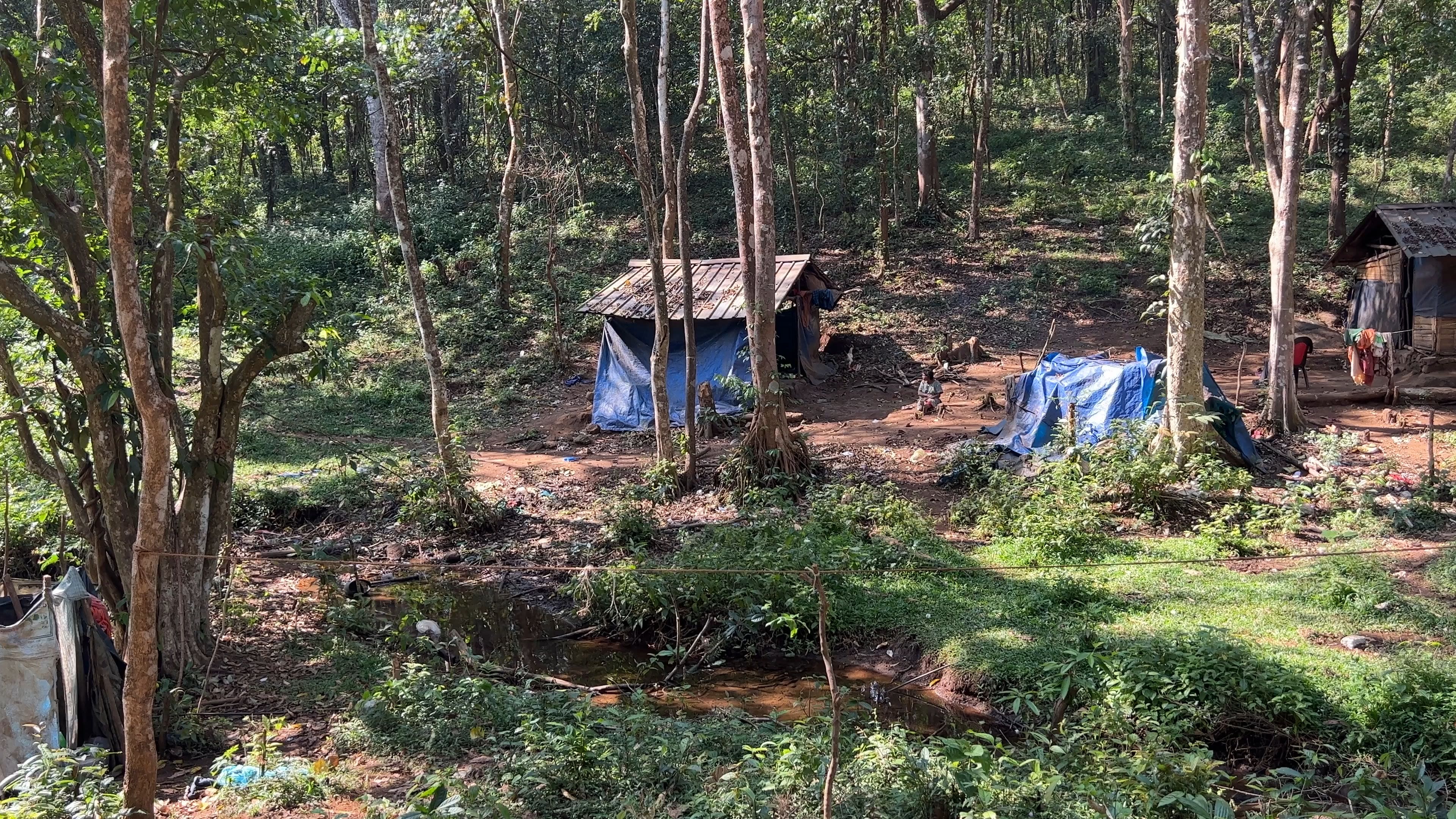Malapandaram - the vagabonds of Kerala
Tribals stumbling in the dark for everyday survival in Kerala — one of India’s most progressive states.

Pathanamthitta, Kerala: “We wish we had a proper place to live. Lack of electricity and water resources make our lives a living hell,” Satheeshan, a local resident in Manjathodu colony said. Malapandaram also known as the Hill Pandaram is a Scheduled Tribe community living in the forested areas of Idukki and Pathanamthitta districts in the southern Indian state of Kerala. They are nomadic groups that migrate from one place to another in search of food and medicines. A few of these groups are also now seen in forest regions of Palakkad.

Today, around 28 families are settled in a small village called Laha in Pathanamthitta. In the early days, they used to live along the shores of the Pamba River which is approximately eight kilometres from Sabarimala Temple.
Unlike the other tribes such as Mannan and Muthuvan, these tribes are forest-based communities. They lived inside the forests and were never keen on mingling with the people outside their tribal community.
Though the Forest Department along with the state government tries to provide them with a permanent place to live, these families are not happy with the efforts. As the promises of providing better houses and facilities remain unfulfilled, these families seem to be losing their patience and trust placed in the government authorities.
According to the Deputy Range Forest Officer, Muhesh Kumar, the government has decided to give around one-acre land to 22 families living in the Manjathodu colony in Laha. Years ago, the government had also promised these families electricity and proper sanitation facilities.
Fifty-year-old Satheeshan belongs to one of those families who is promised this one-acre land. Contrary to what the Forest Department says, he and his family of five members seemed to be living in constant distress. He lives in a small hut made of bamboo which has two small rooms and a kitchen.



One cannot make out if these partitioned rooms are their bedrooms or living rooms. Other than the two plastic chairs, there is hardly any furniture in his house.
Almost all the children in this colony study at the Government Tribal School in Attathodu. However, neither of the families seemed keen on getting their children educated. “We will send the kids to the school as long as we can. We cannot afford to send them for higher studies,” Susheela, a local resident said.
Having spent a large part of their lives as nomads, these tribal families are still trying to adjust to a permanent settlement. Despite the lack of proper facilities, they are forced to reside in these bamboo huts. The otherwise forest-based Malapandaram tribe also lack jobs which makes it even more difficult for them to carry on with their daily lives.
Susheela said that they get Rs. 50 for one kilogram of dried bark. They go into the forests in the wee hours of the morning so that they do not have to worry about getting attacked by wild animals. Though they are assigned to this job, they are not provided with any means of transportation to and from the forest. Hence, they have no option other than to carry it back on their shoulders.
Despite the government’s promises and efforts, the Malapandaram tribe lives in constant fear of losing their homes. Being in the forest area, they also have to look out for the elephants that wander around during the night, threatening their lives and properties. At least one member in each of these families remains awake to ensure the safety of their families. In fact, there is never a day when all the members of these communities have had a peaceful slumber.

